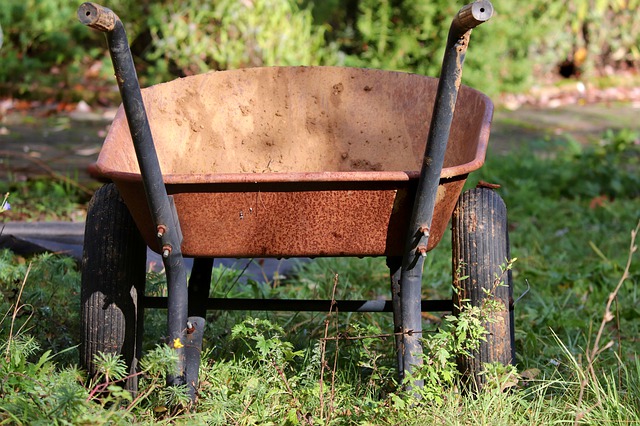
Organic gardening is also cheaper; you don’t have to spend as much money on tools and requires very little equipment. Here are some strategies to aid you to become a good organic gardener.
Start your seedlings in pots inside and then transplant them into your garden. Your plants will be more likely to mature this way. It also allows you to tighten up the time periods between plantings. You can plant the seedlings once you have removed the old plants.
Make sure that your sod properly. Pull all the weeds and break up any clods of soil. Make sure your soil is flat and even. Make sure the soil is moist soil.You want the sod laid down in staggered rows, and have the joints offset.
Your plants need to adapt and must be gradually introduced to changes of environment. Put them in the sun for no more than two hours during the first day. Then over a weeks time, gradually increase the time they are in their new habitat.By the week’s end, your plants should be ready to make the big move with no problem!
When winter arrives, transfer some plants into the house to save them. Perhaps save the most resistant or expensive plants. Dig carefully around the roots, then transfer the plant into a pot.
You don’t need a costly chemical treatments for plant mildew.Mix a little liquid soap and some baking soda in water. Spray the mixture on the plants about once every seven days or so until you no longer see the mildew. This method is not going to cause any damages to your plants and the mildew safely.
Be sure to get rid of the weeds growing in your efforts to banishing weeds! Weeds will cause your garden to become overgrown and take away all its potential. White vinegar is one option you can be used as a natural herbicide. White vinegar will definitely kill those pesky weeds. If you are too busy to pull weeds by hand, simply spray them with a white vinegar solution.
Vegetable plants should be planted where they can benefit from a minimum of six hours of sunlight every day. Pretty much any vegetable you plant in your garden requires sunshine for this duration. It allows them to grow in the proper manner and also much faster. Some flowers also have the same needs.
Do you love fresh mint leaves though hate how they quickly grow to take over your entire garden? You can slow their growth rate by planting it inside a container or super-sized bowl. If you prefer, simply plant the container, but the pot’s walls will prevent the mint from spreading and being a nuisance in your garden.
Fertilizing your garden soil. Manure can be effective, although it’s vital to use commercially composted products in order to lessen the risk of a variety of pathogens.
Be vigilant about keeping moisture off your plants. If you have excess moisture, this can attract bugs or diseases. A fungus is one of the most important and debilitating parasites for plants. Be sure to prevent the growth of fungus with a spray that will inhibit their growth.
You can prevent pests away from your garden with certain plants or natural materials. Slugs are repelled by bordering your vegetable garden with either onions or pungent vegetables. These methods without having to use harsh chemical pesticides.
If you are horticulture for the first time ever, make sure you heed all of the directions on fertilizer and chemical labels. If you fail to do this, you could cause unnecessary skin irritations, which are very painful. Keep your body safe and follow the directions to the letter.
Try growing your peas indoors for the first couple months. Seeds will always germinate much better when you first plant them indoors initially. The baby plants will also be stronger and will resist pests and disease better. Once they grow a bit bigger, the seedlings can be easily transplanted to an outdoor garden.
Know the perfect time to harvest each of the vegetables you plant. Each veggie has unique time frames for harvesting. For example, peas and zucchinis are tastiest when picked young. Tomatoes, in contrast, are tastiest when they have been allowed to ripen on the vine as long as possible.
By following some of the tips we include in this article, you’ll be up and running in no time and will soon have a good supply of produce grown in your own garden. Organic gardens are also more attractive to a variety of wildlife, who appreciate the chemical free environment.
Consider planting evergreens in your garden that produce berries. This gives your garden a bit of a “splash” of color, even in winter when everything is nearly colorless. Plants which you can purchase that offer color during the winter are the Winterberry, the Common Snowberry, the American Holly, and the American Cranberrybush.